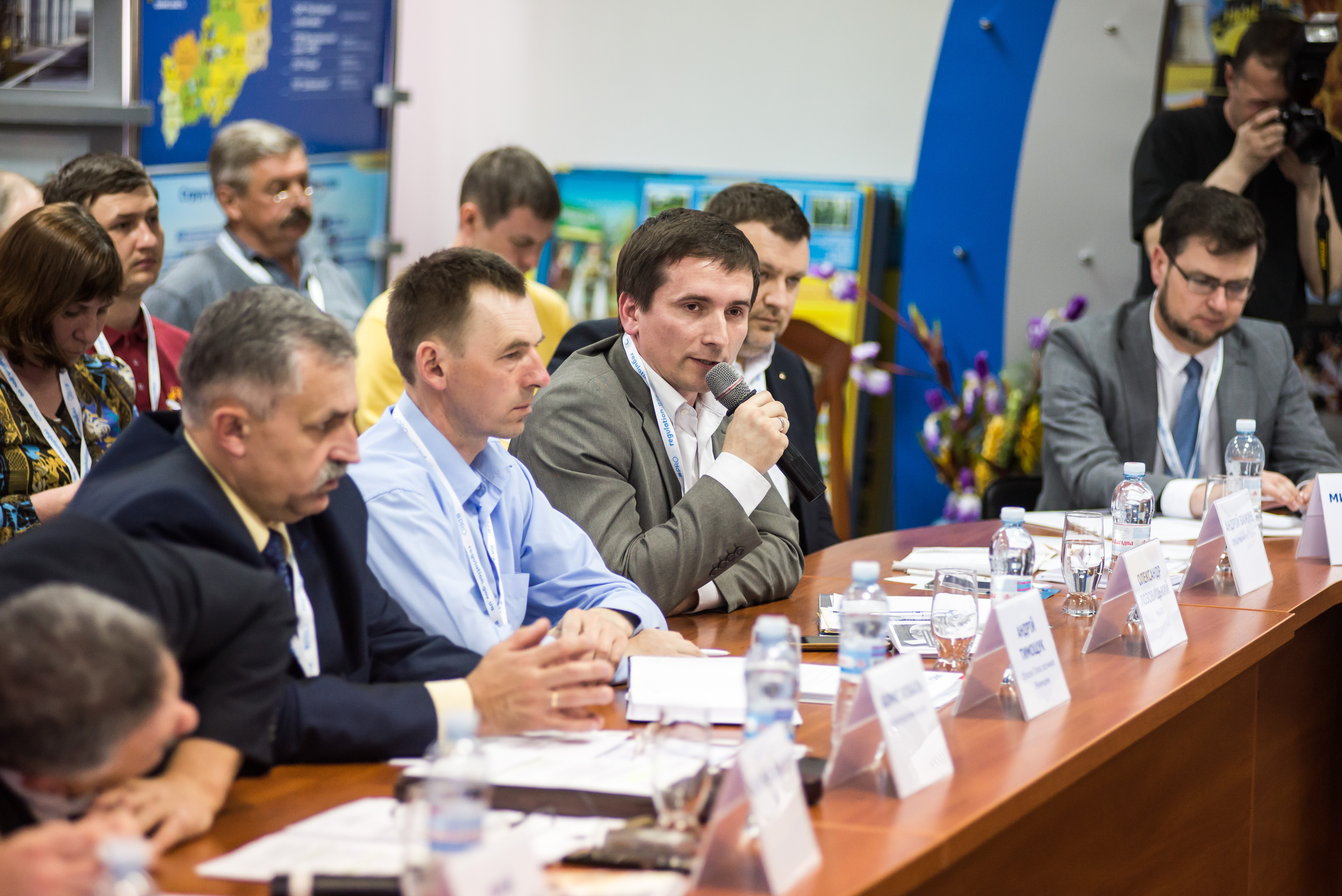Ukraine is one of the six largest honey producers in the world and provides up to 5% of world production each year. Bee-farming has a huge potential to increase exports and develop small and medium-sized businesses in rural areas. However, the high cost and non-transparent rules to enter the market make this industry moving into the shadow and result in a lack of adequate control.
The state, business and public representatives discussed the ways of resolving the market problems during the regional Round Table “Honey Production Market: From Traditions to World Export” in Rivne on April 20, 2018. The event was arranged by the BRDO Office with the support of EU4Business\FORBIZ as part of the Public Dialogue #PRODialogue.
According to BRDO, in Ukraine, 98% of honey production are concentrated in private households and only 2% are produced by registered business entities. However, one in almost every 100 Ukrainians are engaged in beekeeping, and this is about 400 thousand farmer beekeepers, who will significantly increase the entrepreneurial potential and promote regional development if they are officially registered.
In Ukraine, the regulatory framework of the honey market includes 44 acts. One fifth of them are outdated, and 3 regulatory acts are even illegal. The special law “On bee-farming” has a number of shortcomings and does not cover all regulatory aspects required for the comprehensive market development.
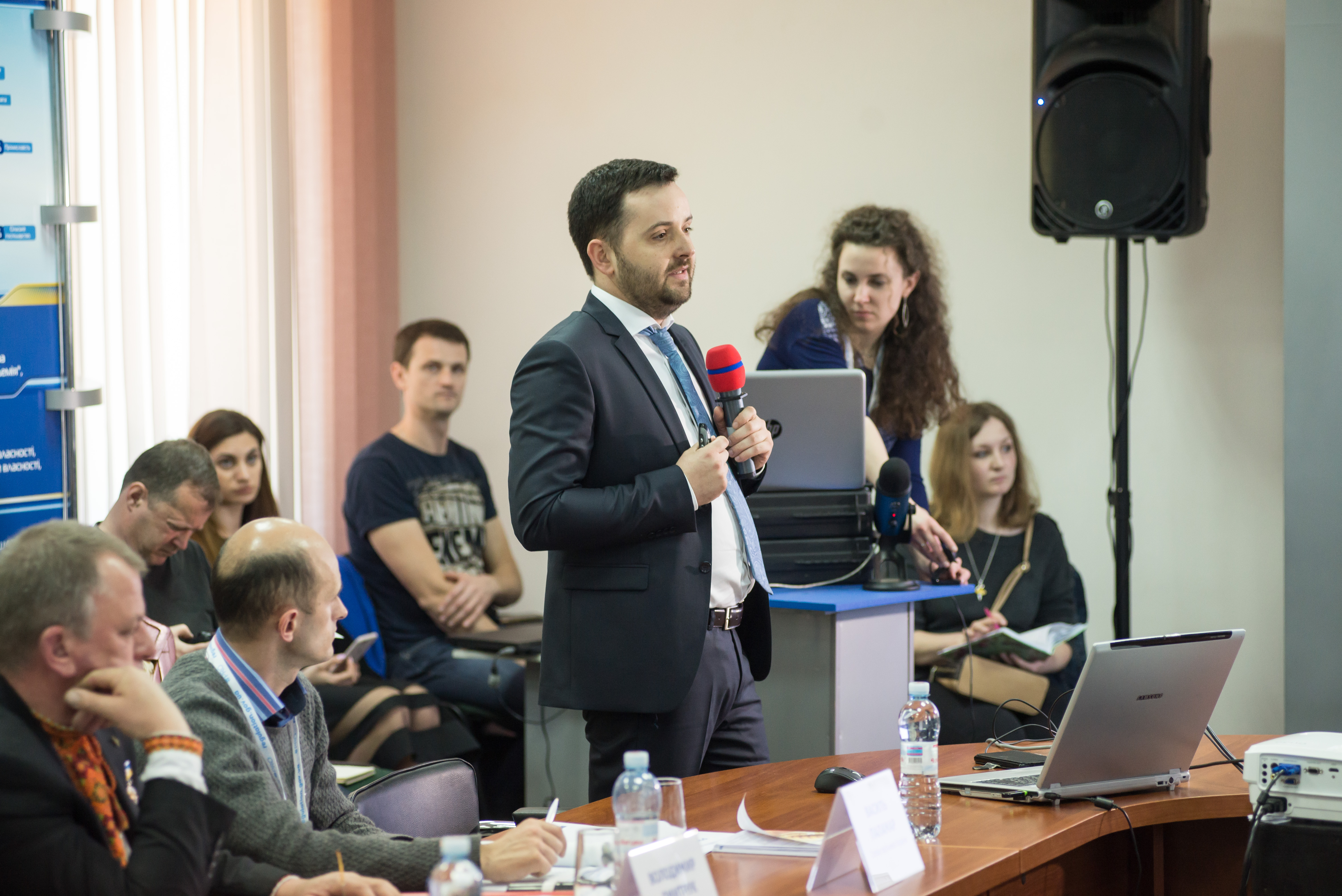
“Business owners has to appeal at least 26 times to the state authorities from the beginning of honey production to its sale in the domestic market or for export. Such a number of regulatory tools does not help businesses clearly understand the market rules and provokes numerous corruption risks. This is particularly the case with the procedure for using a veterinary and sanitary card of bee farms, which is the main document to access the market,” Andriy Zablotskyi, the Agriculture Sector Head at BRDO, said.
for example, the Law “On bee-farming” provides for the issuance of veterinary and sanitary cards, but the Law “On Veterinary Medicine” doesn’t provide for this step. Such a legislative inconsistency creates grounds for late business registration, inefficiency of doing business, a lack of honey traceability, which is critical to export activities.
Ukraine is among the top three global exporters of honey while coming third only to China and Argentina. Over the past seven years, export volumes have grown sevenfold, reaching almost 68,000 tons in 2017. More than 48 thousand tons of them were exports to the EU countries.
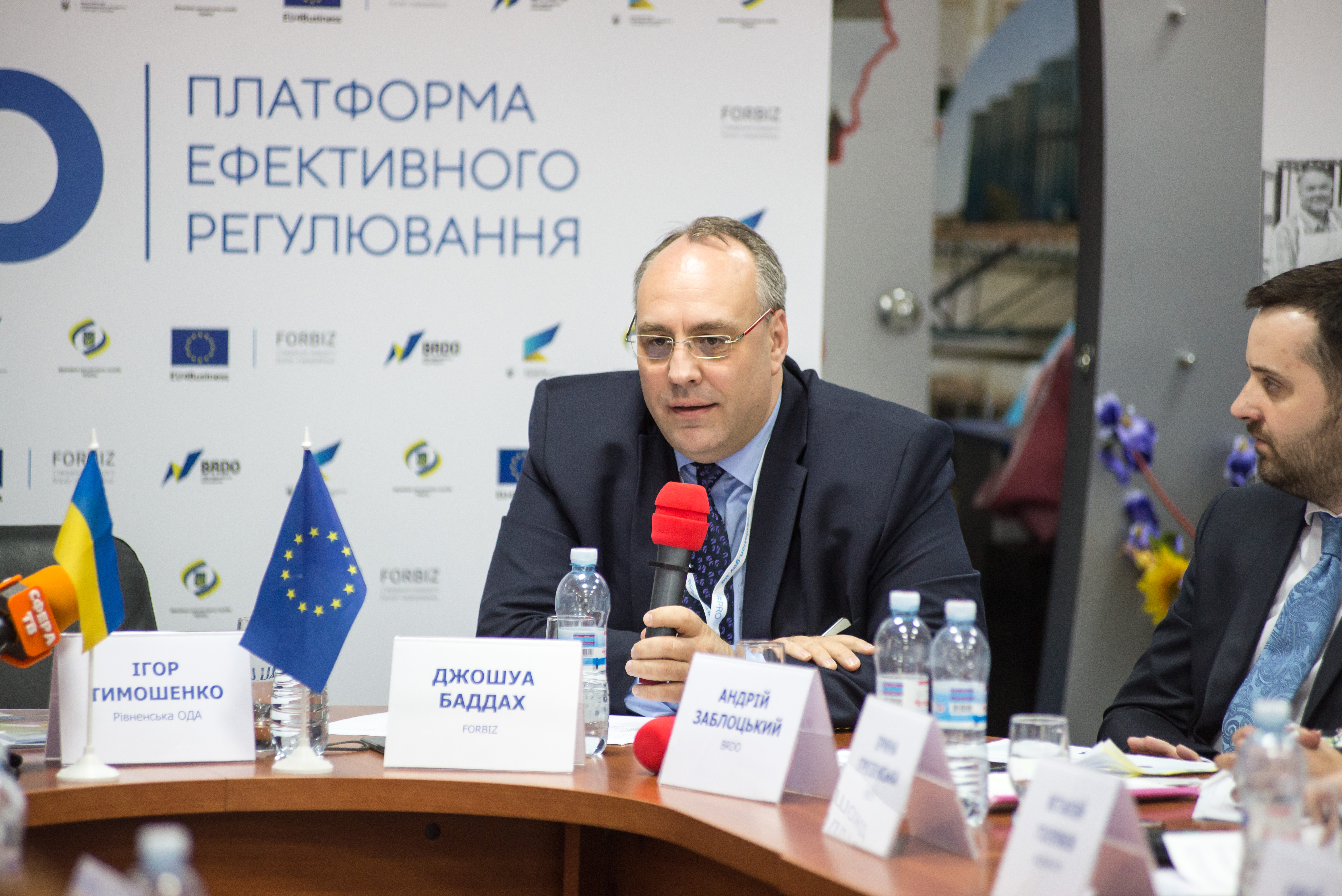
” Ukrainian honey is in great demand in the EU. In the context of cooperation with the EU, the quota for Ukraine has been increased, but it is taken up already during the first month of the year. At the same time, the price of Ukrainian products is much lower than the same products in other countries, because it exports largely raw materials. Harmonization of the Ukrainian legislation with the European directive “On honey” by approving the technical regulations will allow exporting finished products with greater added value,” the EU4Business/FORBIZ key expert Joshua Badach said.
Another problem for the market is the negative impact of the use of plant protection products (PPP) by agro-enterprises that leads to the death of bees and damages to bee-farming. The worldwide practice shows that principles of good neighborliness help agrarians and beekeepers achieve the best results: agro-enterprises do not use PPPs that negatively affect bees and accurately report on field cultivation, while pollinate their crops having higher yields.
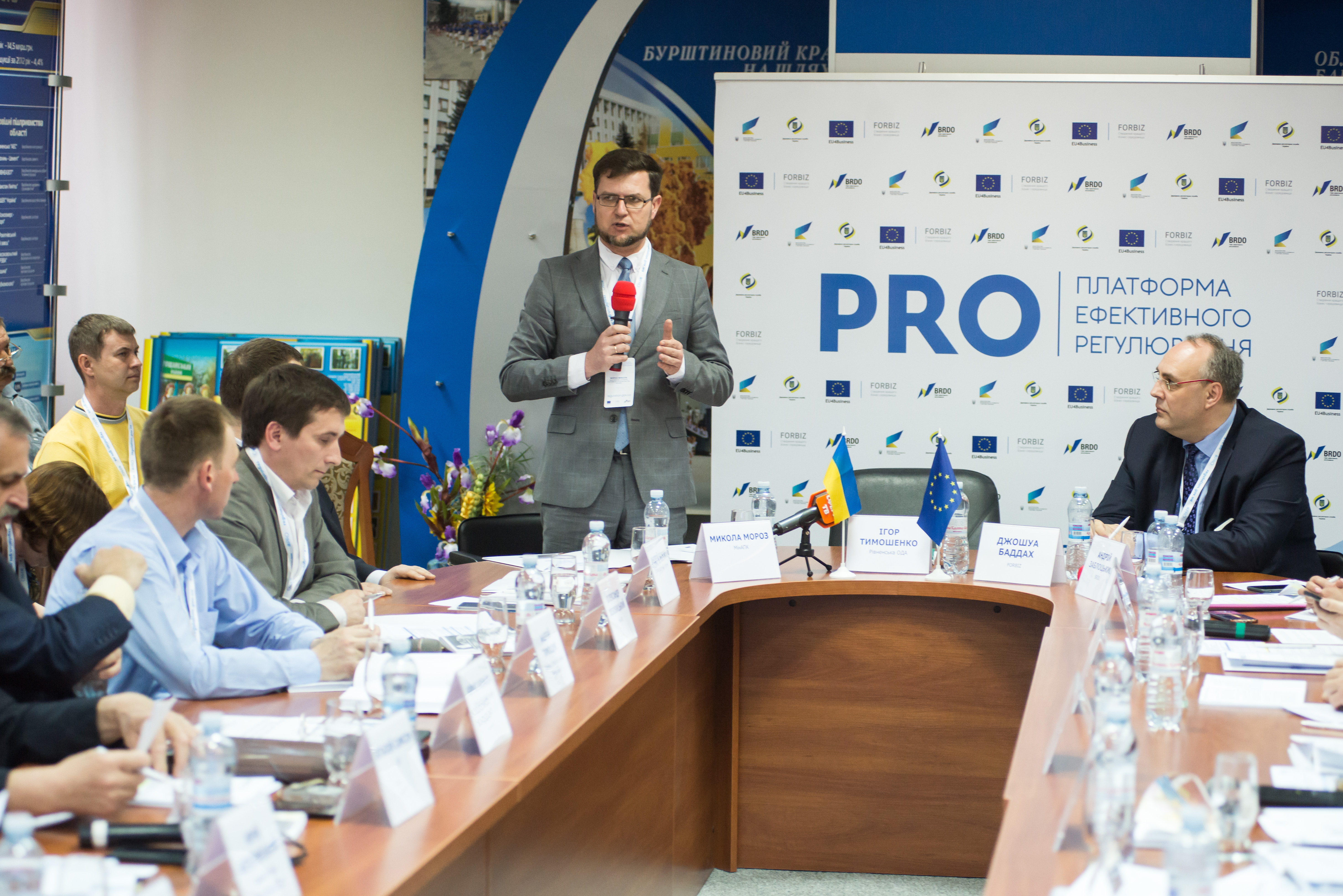
BRDO experts estimated that the following measures would help address the honey market problems:
– Facilitating the bee farm registration.
– Establishing transparent rules for issuing veterinary and sanitary cards for bee farms.
– Strengthening control of the State Service for Food Safety and Consumer Protection over the honey production and trade.
– Strengthening control over the registration and use of plant protection products.
– Introducing legal mechanisms of good-neighborly relations between producers and beekeepers.
– Providing state support to honey producers.
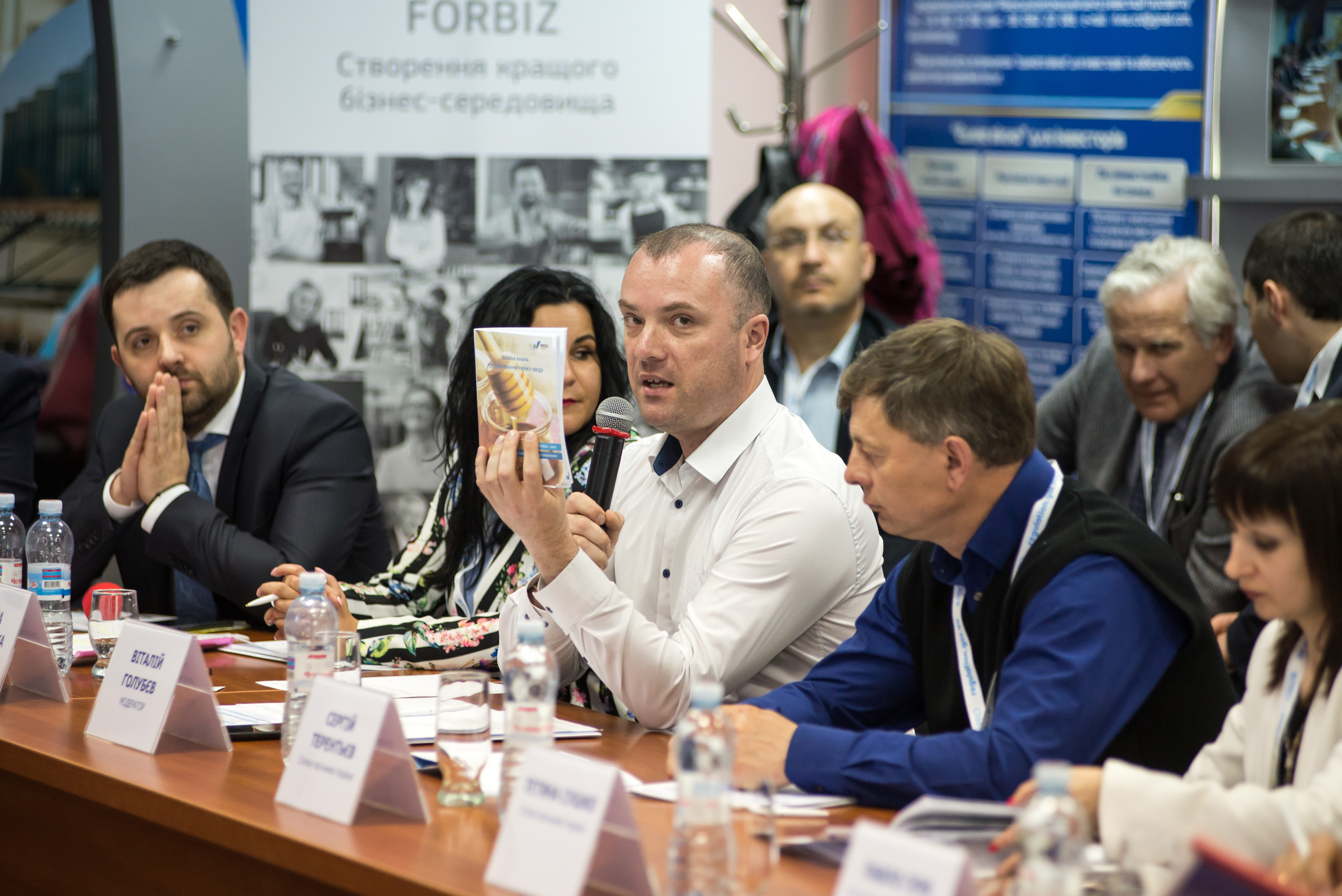
The event was also attended by Mykola Moroz, the Director General of the Food Safety and Quality Directorate of the Ministry of Agrarian Policy, Oleksandr Lozovytskyi, the Head of the Department for International Integration in Technical Regulations, Sanitary and Phytosanitary Measures of the Ministry of Agrarian Policy, Andriy Bazhyn, the Vice-President of the Public Union “All-Ukrainian Public Association “Union of beekeepers of Ukraine”, Pavlo Hegb, the Council Member of the Public Association “Dniprovsky bee keeper”, Borys Kobal, the Director of the Department of Agricultural Complex of the Rivne RSA, director of the Department of Food Safety and Veterinary Medicine at the State Service for Food Safety, Vitaliy Samson, the Head of the SRS Sector in Rivne region and numerous business representatives.
